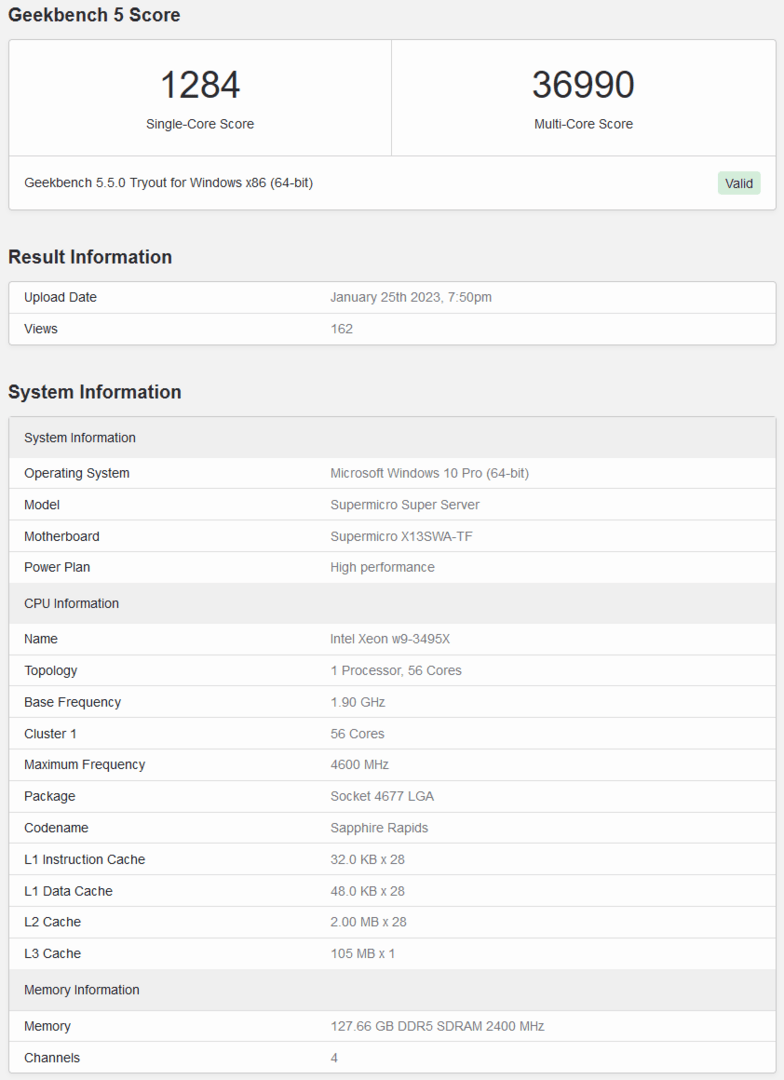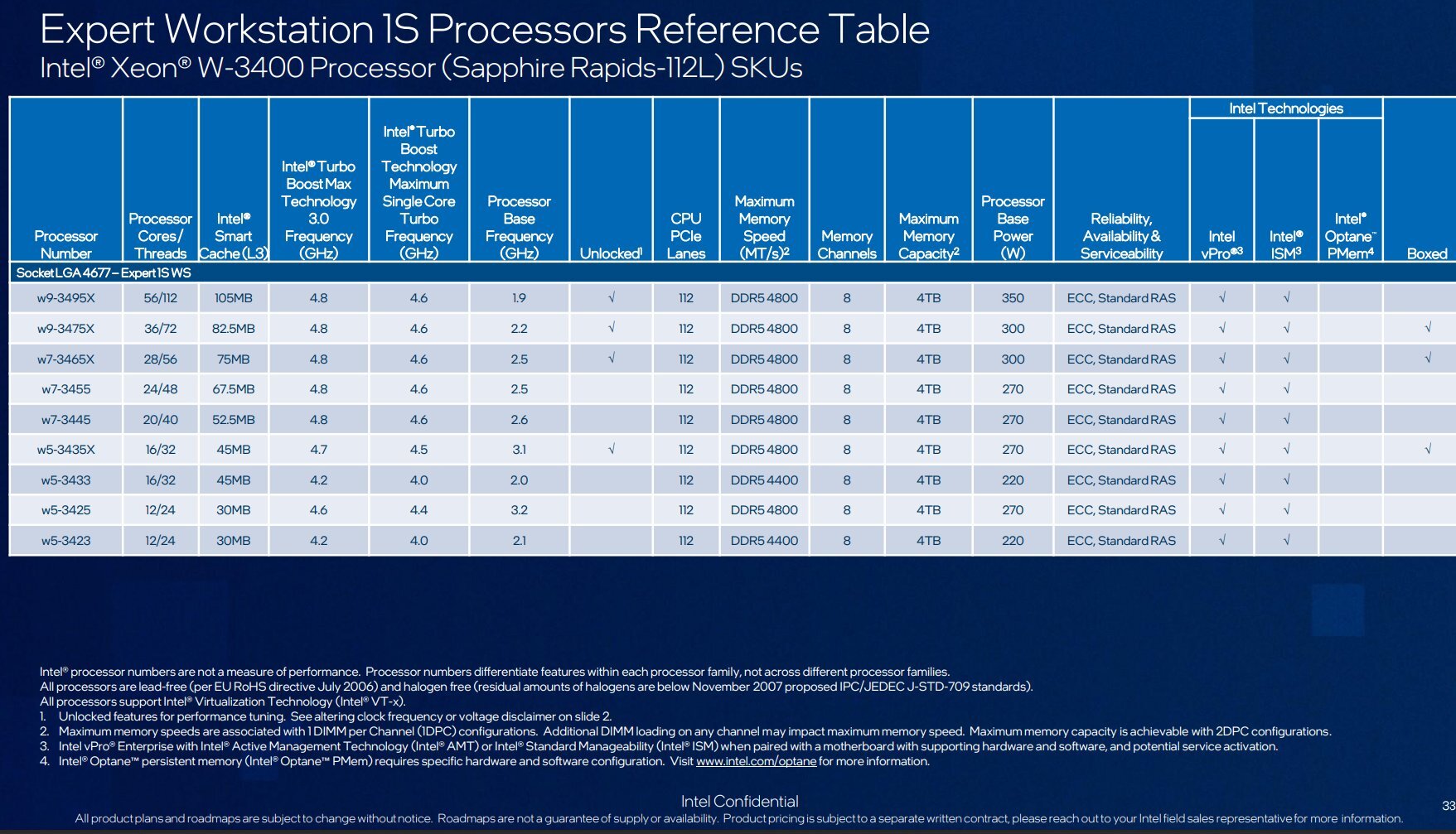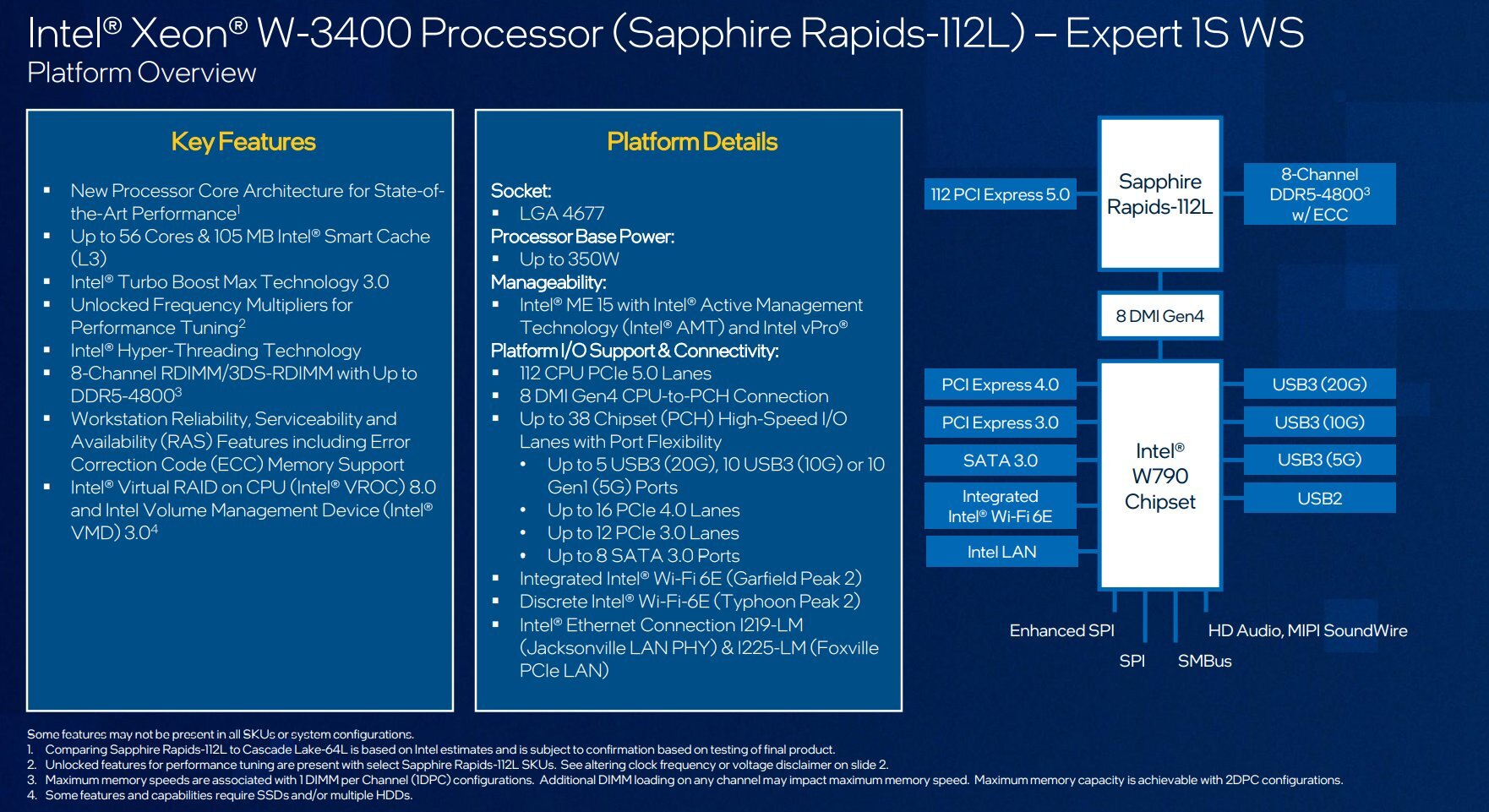In advance benchmarks, the Intel Xeon w9-3495X not only shows its existence, but also other specifications of the series. These workstation CPUs with an open multiplier should not only move in professional environments but also represent a potential HEDT successor. They are supposed to appear as early as February.
56 cores are coming
The Geekbench listing confirms the processor's key data, which had already been extensively leaked in December last year. The Intel Xeon w9-3495X is the flagship of the large workstation series, and with 56 cores it also offers the full configuration. It comes with a 105 MB L3 cache. The basic clock rates are only 1.9 GHz, but in turbo it goes up to 4.6 GHz – or more. Appropriate RAM is also part of the game, the tool indicates 128 GB DDR5-4800, although allegedly only in four channels and thus half of what would be possible.
 Intel Xeon w9-3495X in Geekbench (Image: Geekbench)
Intel Xeon w9-3495X in Geekbench (Image: Geekbench)The Geekbench listing supports and partly confirms the parameters that had already appeared on an Intel roadmap. Small details such as a Turbo 3.0 are not listed yet, since the CPU apparently ran in Geekbench without activated Hyper-Threading, recognizable by only 56 threads for 56 cores, the pre-series or test setting seems to be running here.
-
 Intel Xeon W-3400 aka Sapphire Rapids-112L (Image: Twitter)
Intel Xeon W-3400 aka Sapphire Rapids-112L (Image: Twitter)
< /ol> Image 1 of 2
 Intel Xeon W-3400 aka Sapphire Rapids-112L (Image: Twitter)
Intel Xeon W-3400 aka Sapphire Rapids-112L (Image: Twitter)Sapphire Rapids-112L is the code name for the large chips in the workstation family, they all offer 112 PCIe lanes, eight memory channels and up to 56 cores. There will be a total of nine CPUs here, some of them “unlocked” and also as boxed processors. They all sit in the same LGA 4677 socket as the recently introduced server processors from the Sapphire Rapids-SP family.
Official from mid-February
According to the latest information even from the official side, the solutions should already be revealed on February 15th. Workstation professionals like Supermicro will offer corresponding single-socket boards, it should be interesting to see which classic desktop mainboard manufacturers might jump on the bandwagon. In the last failed attempt to push Xeons with an open multiplier into this market, only Asus and Gigabyte each had a single motherboard.